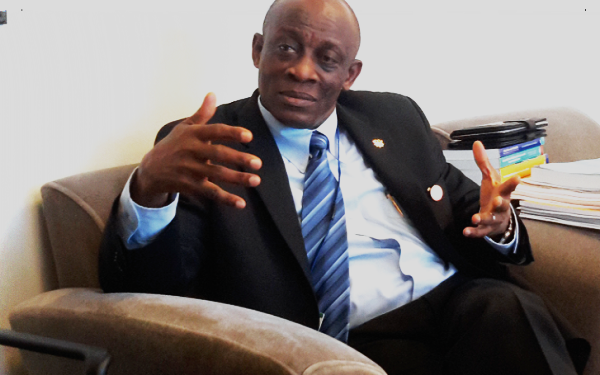Fidelity to PRMA Act to prevent future requests for IMF bailout – Seth Terkper
Erstwhile Minister for Finance, Seth Terkper, has noted that strict adherence to the Petroleum Revenue Management Act by the incumbent and successive governments will help curb the country’s continuous requests for bailouts from the IMF.
According to the former Minister, the build up of the Sinking Fund, Stabilisation Fund and other sovereign wealth funds as demanded by the PRMA Act, would help provide buffers the government can fall on in times difficulties or crisis.
The former Minister noted that, the build up of sovereign wealth funds which he called “policy support programmes” are practiced in several countries, with those countries depending on monies accrued in the funds to support their immediate fiscal needs.
However, government’s decision to discontinue the build up of the country’s sovereign wealth funds has resulted in its inability to gain access to the required funds to finance expenditure, interest and amortisation which has resulted in its request for an IMF programme.
Adding that, the government, by not being faithful to the PRMA Act has shot itself in the foot.
“Saving some of the petroleum revenue in the Sinking Fund, Stabilisation Fund and the others will help prevent Ghana from going to the IMF. As a country we should have been building up our sovereign funds but we haven’t been doing that (sic).
“A lot of countries do policy support programmes so that when their resources (fiscal resources) are not enough they go into their sovereign funds and take money from there (sic).
“With we going to the IMF, I believe that the government has shot itself in the foot by not being faithful to the PRMA Act,” he remarked in a media brief on Monday, July 4, 2022, discussing Ghana’s request for a Balance of Payment (BoP) support to the IMF on July 1, 2022.
He made the assertion amid Ghana’s unsustainable public debt stock and low tax revenue that is only able to cover interest payments and compensation, leaving the government to borrow further to cover amortisation, its flagship programmes, among others.
Ghana on the back of the Petroleum Revenue Management Act, 2011, established its two Sovereign WeaIth Funds which are the Ghana StabiIisation Fund [GSF] and the Ghana Heritage Fund [GHF] – together they from the Petroleum Wealth Fund [PWF] – in 2011.
Presently, the Stabilisation Fund has been capped at $100m, calls for government to remove the cap for more funds to be kept in the Fund has not been heeded.
Meanwhile, Government, is said to likely receive about $2 billion in assistance from the International Monetary Fund (IMF) following the country’s request for a bailout from the Bretton Wood institution.
This is after deliberations on a specific support package have been agreed on by both parties.
Making the disclosure during an interview, Information Minister, Kojo Oppong Nkrumah, noted that considering Ghana’s quota and macroeconomic data, it is possible for the country to get the said amount to help shore up its reserves.
Adding that, with the $2 billion, government will be able to meet its liquidity and debt service obligations and also boost domestic revenue measures.
“Already, you recall that the Finance Minister initially indicated that there were arrangements to get about $2 billion, out of which there is $1 billion available. Parliament has to approve for us to receive so that the cedi does not depreciate further.
“We have a shore up of our reserves to be able to meet the liquidity and debt servicing obligations even as our domestic measures will get better. You have the window to start talking to the Fund.
“Today [Sunday, July 2], I saw a document that said looking at Ghana’s quota and our macroeconomic data, we could get anything, maybe around $2 billion to help shore up what we are looking for,” he stated.
On July 1, 2022, President Akufo-Addo authorised the Minister for Finance, Ken Ofori-Atta, to commence formal engagements with the International Monetary Fund (IMF).
A statement signed by the Information Minister, Kojo Oppong Nkrumah, said the president’s directive to the Finance Minister followed a telephone conservation between President Akufo-Addo and the IMF managing director, Kristalina Georgieva, conveying Ghana’s decision to engage with the Fund.
“The engagement with the IMF will seek to provide balance-of-payments support as part of a broader effort to quicken Ghana’s build-back in the face of challenges induced by the COVID-19 pandemic and, recently, the Russia-Ukraine crises,” the statement read.









